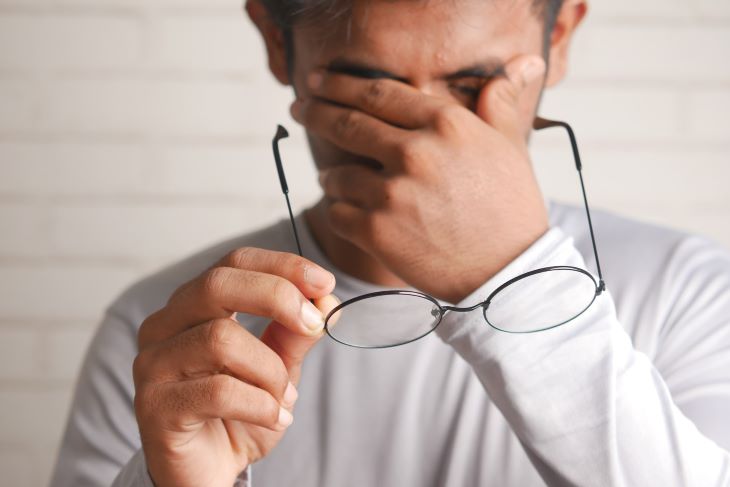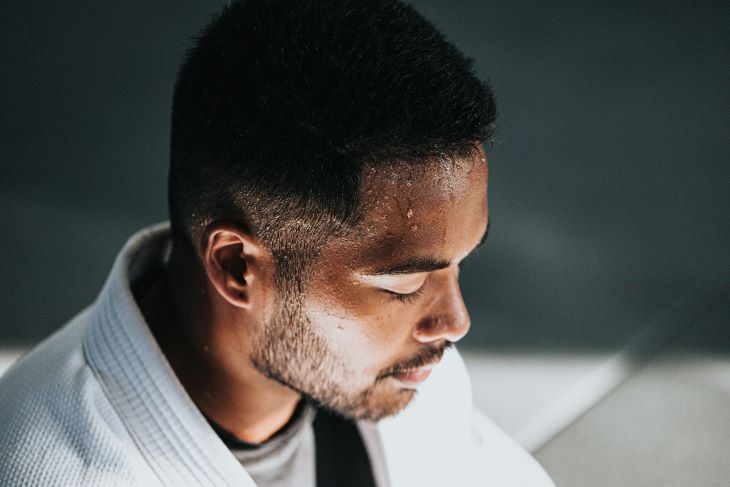- Home
- What Is Inpatient Drug Rehab?
What Is Inpatient Drug Rehab?
Inpatient treatment is also known as residential treatment and is the most comprehensive form of drug addiction treatment for those diagnosed with a substance use disorder.
Most programmes begin with a medically assisted detox before patients begin therapy.
During this form of treatment, patients move from their homes into a designated rehabilitation clinic for a period of 28 days or longer.
Here you can access bespoke services to help you overcome your addiction.
At Rehab Recovery, we help individuals to recover from drug and alcohol addictions. With support every step of the way, our team can help you to reach long-lasting sobriety and look forward to a brighter future.
To discuss inpatient drug rehab, call today on 0800 088 66 86.
What happens at inpatient rehab?

Every patient’s addiction is different which means that their experience of inpatient drug rehab is unique.
Each clinic is different and offers various treatment programmes. For addiction treatment to be effective, it must be tailored to the individual.
Most clinics tend to share a common ground and provide the following:
Detox
Detoxification is the first step in the rehab process for most clients. This helps to remove all physical dependencies in a safe and medically secure environment.
This process involves removing all traces of substances from the body so that you can begin therapy.
This process isn’t prescribed to everybody but should usually be expected when you enter a rehab facility.
Detoxes are required when addiction causes the body to develop a very high tolerance to drugs and alcohol.
Detoxes can be challenging without the right level of care. Without professional assistance, stopping all consumption can be very dangerous and is not advised.

By opting for inpatient drug rehab, you can benefit from around-the-clock care and prescription medication to reduce withdrawals if staff deem your symptoms severe enough.
Detoxes are based on the evidence that someone who is struggling with physical dependencies will be unlikely to overcome underlying mental health conditions without the correct help in place. [1]
Withdrawal symptoms during a detox often include:
- Nausea, vomiting, and diarrhoea
- Sweating
- Increased blood pressure
- Increased heart rate
- Runny nose
- Exhaustion
- Muscle aches
- Bone pain
- Headaches and migraines
- High temperature
- Abdominal cramps
- Irritability
- Depression
- Anxiety
- Insomnia
- Mood swings

At inpatient drug rehab, it’s not just medication that eases withdrawal symptoms. It is also vitally important to have constant support and compassion to help result in the best outcome for all.
During the detox process, you will have access to 24-hour support whenever you need it.
Detoxes tend to last between 7 to 10 days though this can vary according to how severe your addiction is, how strong your withdrawal symptoms are, and the state of your physical and mental health.
After your detox, you will be able to progress onto your rehabilitation programme which is tailored to your needs. Here you will begin a range of therapies.
At Rehab Recovery, we help individuals to recover from drug and alcohol addictions. With support every step of the way, our team can help you to reach long-lasting sobriety and look forward to a brighter future.
To discuss inpatient drug rehab, call today on 0800 088 66 86.
Therapy

Treating addiction goes beyond overcoming the physical dependencies. Counselling and therapy are a continued part of recovery for many people.
With the right kind of therapeutical treatment, you can begin to explore the roots of your substance use disorder as well as any underlying mental health conditions.
Therapy is so important because addiction is more than a physical dependency on drugs and alcohol.
Although you may complete a detox successfully, you are still at risk of relapsing. This is because addiction also requires psychological support to treat.
Things that increase the chances of relapse include:
- Life stresses or leaving treatment when you aren’t ready
- Visiting a certain place or person
- Spending time with others who continue to abuse drugs
Relapses usually occur due to a range of social factors which is why we advise patients to continue in their programme for around 28 days.
During this time, you can begin a range of comprehensive therapies to help you secure long-lasting sobriety.

The kinds of therapies offered in inpatient drug rehab are a combination of traditional and holistic therapies such as:
- Cognitive behavioural therapy (CBT)
- Dialectical behavioural therapy (DBT)
- Brief interventions
- Motivational interviewing
- Holistic therapies (including equine therapy, music therapy, art therapy, adventure therapy)
- Group therapy
- Individual therapy
- Family therapy
- Co-dependency treatment
In rehab, many therapies are offered in a group setting whilst others are on a 1:1 basis with a counsellor or therapist.
At Rehab Recovery, we help individuals to recover from drug and alcohol addictions. With support every step of the way, our team can help you to reach long-lasting sobriety and look forward to a brighter future.
To discuss inpatient drug rehab, call today on 0800 088 66 86.

Group therapy, whilst it can feel daunting, offers you the opportunity to open up and connect with others in a similar position to yourself.
Group therapy can challenge you in healthy ways so that you can begin to understand more about your addiction and how to work on developing healthy coping mechanisms.
Cognitive behavioural therapy, also known as CBT, can help you to recognise the things in your life that cause cravings.
By working closely with your therapist through inpatient drug rehab, you can learn how to recognise triggering thoughts and avoid relapsing. [2]
Reframing difficult thoughts can help you to steer yourself away from addictive behaviour. CBT offers skills that can help prepare you for a positive life in recovery.
Dialectical behavioural therapy (DBT) was originally developed in the 1970s for people who feel emotions very deeply. Since then, it has been adapted for a wide range of therapeutical purposes, most notably, in treating addiction.
DBT helps patients to stop substance abuse by replacing this negative behaviour with a more positive one, such as starting new relationships or creating important goals that would prevent the person from consuming drugs or alcohol.

Many clinics now offer family participation to help encourage and motivate you on your recovery journey.
Family can form your strongest support network and provide a secure environment for you to return to once you have completed your treatment programme.
Through family therapy and visiting sessions, you can work on healing any relationships that may have been damaged as a result of your substance abuse.
During this time, your family can also work on understanding more about your addiction and the ways they can offer you ongoing support.
At Rehab Recovery, we help individuals to recover from drug and alcohol addictions. With support every step of the way, our team can help you to reach long-lasting sobriety and look forward to a brighter future.
To discuss inpatient drug rehab, call today on 0800 088 66 86.
How do I know if I need inpatient treatment?

The kind of people who would benefit the most from inpatient rehab are:
- Those who are at a very high risk of experiencing drug and alcohol withdrawals
- Those who have relapsed
- Those who have tried outpatient treatment but have been unable to stay sober
Most patients who opt for inpatient treatment have received a dual diagnosis.
A dual diagnosis occurs when patients are struggling with both a substance use disorder and a co-occurring mental health condition. This can make outpatient treatment very difficult to complete.
With inpatient rehab, you can rest assured that all of your needs are taken into consideration to help you recover both physically and mentally.

When it comes to accessing inpatient rehab, the most important thing is to be honest. Whilst you may feel like you have control over your substance use disorder, it may be more severe than you realise.
Denial is a huge aspect of addiction with the individual affected often being the last to see the effects their substance abuse has caused.
Another deciding factor between inpatient and outpatient treatment is to consider the type of environment you reside in.
For many people it can be nearly impossible to recover in the home environment due to associated triggers and distractions, and therefore a residential programme will be required.
Inpatient rehab can provide you with a consistent support system and 24/7 care allowing you to recover safely and at your own pace.
At Rehab Recovery, we help individuals to recover from drug and alcohol addictions. With support every step of the way, our team can help you to reach long-lasting sobriety and look forward to a brighter future.
To discuss inpatient drug rehab, call today on 0800 088 66 86.
How long is inpatient rehab?

The total length of your programme will vary according to multiple factors such as the severity of your addiction, your budget for treatment, and the type of substance you are addicted to.
Your programme length will also depend on your progress and the likelihood of meeting recovery milestones. Most clients tend to stay in rehab for around 28 to 30 days, but others stay for around 3 to 6 months.
Some clinics even offer yearlong programmes to ensure complete recovery.
After your programme, you will also receive aftercare and recommendations for support in your local area.
What is aftercare?

Aftercare is a continued form of treatment that helps patients to adjust to life outside of rehab in their newfound sobriety.
Completing treatment and returning home can feel overwhelming for many. Fortunately, Rehab Recovery is on your side.
We work with a wide range of inpatient rehabilitation treatment providers who include aftercare in their programmes.
Aftercare usually consists of progress meetings to help ensure you remain motivated, as well as outpatient therapy sessions.
Continuing therapy is very beneficial and can help you to manage triggers and avoid relapses. In addition to this, you will also prepare a relapse prevention plan before you complete treatment.
This plan is also shared with your support networks and details how to avoid relapses should one feel likely to occur or what to do in the event of a relapse.
At Rehab Recovery, we help individuals to recover from drug and alcohol addictions. With support every step of the way, our team can help you to reach long-lasting sobriety and look forward to a brighter future.
To discuss inpatient drug rehab, call today on 0800 088 66 86.

With private treatment, you can re-admit yourself to inpatient rehab should you need to.
Relapsing is not a sign of failure or a sign that you should give up attempting to seek sobriety. Relapses often happen in the first year of recovery and show that your needs are not being met.
By re-entering an inpatient rehab, you can work to avoid future relapses and develop healthy coping mechanisms and techniques to help you.
Your chosen rehabilitation facility will also be able to advise you on what local groups are available to you. Most clients tend to opt for weekly Alcoholics Anonymous or Narcotics Anonymous sessions to help maintain sobriety.
How much does inpatient treatment cost?

The price of treatment depends on the kind of facility you attend. In the UK, most month-long rehab programmes begin priced at around £495 per day to £1,000 a week.
This could mean that your programme costs anywhere between £4,000 to £14,000.
Some clinics offer luxury services which make programmes around £70,000 for a month-long stay.
This type of rehab clinic is often attended by celebrities and A-listers as it offers complete privacy and additional benefits such as nutritionists and personal trainers.
At Rehab Recovery, we help individuals to recover from drug and alcohol addictions. With support every step of the way, our team can help you to reach long-lasting sobriety and look forward to a brighter future.
To discuss inpatient drug rehab, call today on 0800 088 66 86.
How do I begin the admission process for inpatient rehab?

To begin the admission process, all we ask is that you are ready to recover.
Your first step is to telephone us on the number provided. Here you can begin a confidential phone assessment with a qualified adviser.
This assessment will help us to find out more about you and your treatment needs.
Whilst it can feel daunting to reach out, it is for the best. By calling us immediately you can benefit from a swift admission to a facility of your choice.
With our experience in addiction treatment, we can recommend top inpatient rehab clinics in your area that offer programmes designed to suit your needs.
Once an admission date has been set, you will move into your chosen facility with support every step of the way.

Here you can benefit from medical care, single occupancy accommodation, and a combination of treatment efforts.
Inpatient rehab also includes a variety of additional benefits such as laundry and catering services.
If you are struggling with addiction and don’t know where to turn, contact Rehab Recovery today.
Continuing to abuse substances can cause irreversible damage to your health placing your life in extreme danger. However, help is available.
Overcoming addiction isn’t an easy process, but there are clinics ready and waiting to offer you the professional support you need. If you would like to recover away from the UK, we can also source top-quality treatment abroad.
Many people choose to recover abroad as it offers them the chance to heal away from the distraction associated with their life in the UK.
At Rehab Recovery, we help individuals to recover from drug and alcohol addictions. With support every step of the way, our team can help you to reach long-lasting sobriety and look forward to a brighter future.
To discuss inpatient drug rehab, call today on 0800 088 66 86.

References
[1] Early Intervention, Treatment, and Management of Substance Use Disorders
https://www.ncbi.nlm.nih.gov/books/NBK424859/
[2] Cognitive behavioural therapy (CBT)
https://www.rcpsych.ac.uk/mental-health/treatments-and-wellbeing/cognitive-behavioural-therapy-(cbt)


